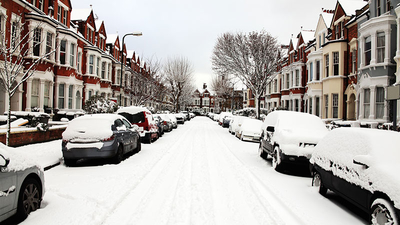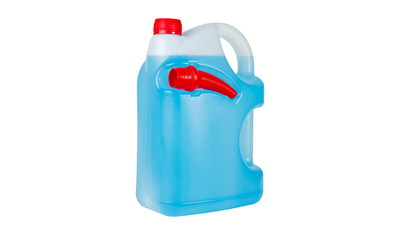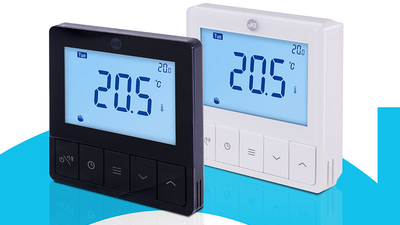Three ways to safeguard against winter plumbing issues

With winter well underway, and with the UK experiencing the dreaded second wave of the coronavirus pandemic, it is more important than ever that this season people and homes are protected from winter plumbing issues.
From frozen pipework to ineffective heating, here are three ways plumbing and heating systems can be winterproofed to avoid disruption and provide comfort for homeowners during the colder months.
1. Remember the six Ps to prevent pipes freezing
According to the Association of British Insurers (ABI), £194 million was paid out to help homeowners deal with burst pipes in the first quarter of 2018, due to bad weather that took its toll on domestic plumbing. The most common winter plumbing issue are frozen pipes. This can cause major damage to property and impact the performance of hot water and central heating systems when they are needed the most.
Fortunately, these systems can be easily future-proofed for all seasons while carrying out the initial installation, by keeping these six Ps in mind: preparation, pressure, placement, protection, prevention and programming.
Pressure
When the water in pipework freezes, it causes internal pressure which can cause them to burst – always have this in mind when undertaking new build or retrofit installations.
Placement and Preparation
Carefully consider pipe layouts when preparing for installation. Avoid placing pipes in rooms that are prone to getting cold, such as lofts or basements.
Protection
If pipework needs to be placed in these areas or outside, it should be lagged with insulation.
Prevention
In unoccupied new builds or vacant properties, we always advise that you drain the pipes when bad weather is forecast and advise homeowners to do the same.
Programming
You can avoid frozen pipes by keeping them warm at all times. SSE advises that thermostats should be set at 12-15℃ when the property is unoccupied to prevent internal pipes from freezing. Smart heating controls like JG Underfloor Heating Controls can help homeowners to program and set thermostats remotely via an app.

2. Add anti-freeze when installing underfloor heating during winter
Another not-so-obvious area of winter plumbing issues where water can freeze and cause pipework to split is underfloor heating (UFH). In new builds or renovations, these projects can span over weeks and even months. It’s not uncommon that UFH pipework is installed and screed is laid months before the property is actually ready for use.
If the UFH pipework in the screed is subject to sub-zero conditions while the rest of the project is being completed, the water in the pipes can freeze. This runs the risk of the pipework weakening and splitting as the water expands upon freezing. The problem may not happen or be detected until much later when the flooring is down, which could result in costly remedial work.
You can easily avoid this by adding antifreeze to the water in the pipework if there is potential for the UFH system to be exposed to freezing temperatures. Once the winter has passed, the water can be flushed out of the system and replaced.

3. Use smart heating controls to tackle fuel poverty
Every winter, many people suffer from fuel poverty, where they cannot afford to keep their homes adequately heated, which causes major discomfort. Additionally, vulnerable groups such as older people, children and people with pre-existing health conditions are more susceptible to cold, which can have a significant impact on physical and mental health.
One solution that installers can recommend to battle fuel poverty is smart heating controls, which enable homeowners to heat up specific rooms rather than the whole house.
These can be programmed to deliver desired temperatures in certain rooms, at specific times throughout the day. The heating can be controlled either from a smartphone app or directly through the thermostats and helps cut fuel bills by up to 30%. The system can be fitted wirelessly too, meaning minimal infrastructure disruptions and a fast and simple installation.
Protecting people and homes for many winters to come
With careful planning and the use of smart technology, most winter plumbing issues that come with the winter season can be avoided. Alongside that, by adopting best practice and latest technology, water and energy wastage can be kept to a minimum, while homes are greener and more sustainable. This also ensures homeowners have comfortable, warm and safe winters.
At RWC, our team of technical experts are with you all the way to offer advice on installation best practice to future-proof plumbing and heating systems and to help build energy-efficient homes. If you’ve got any questions, please contact us here.
